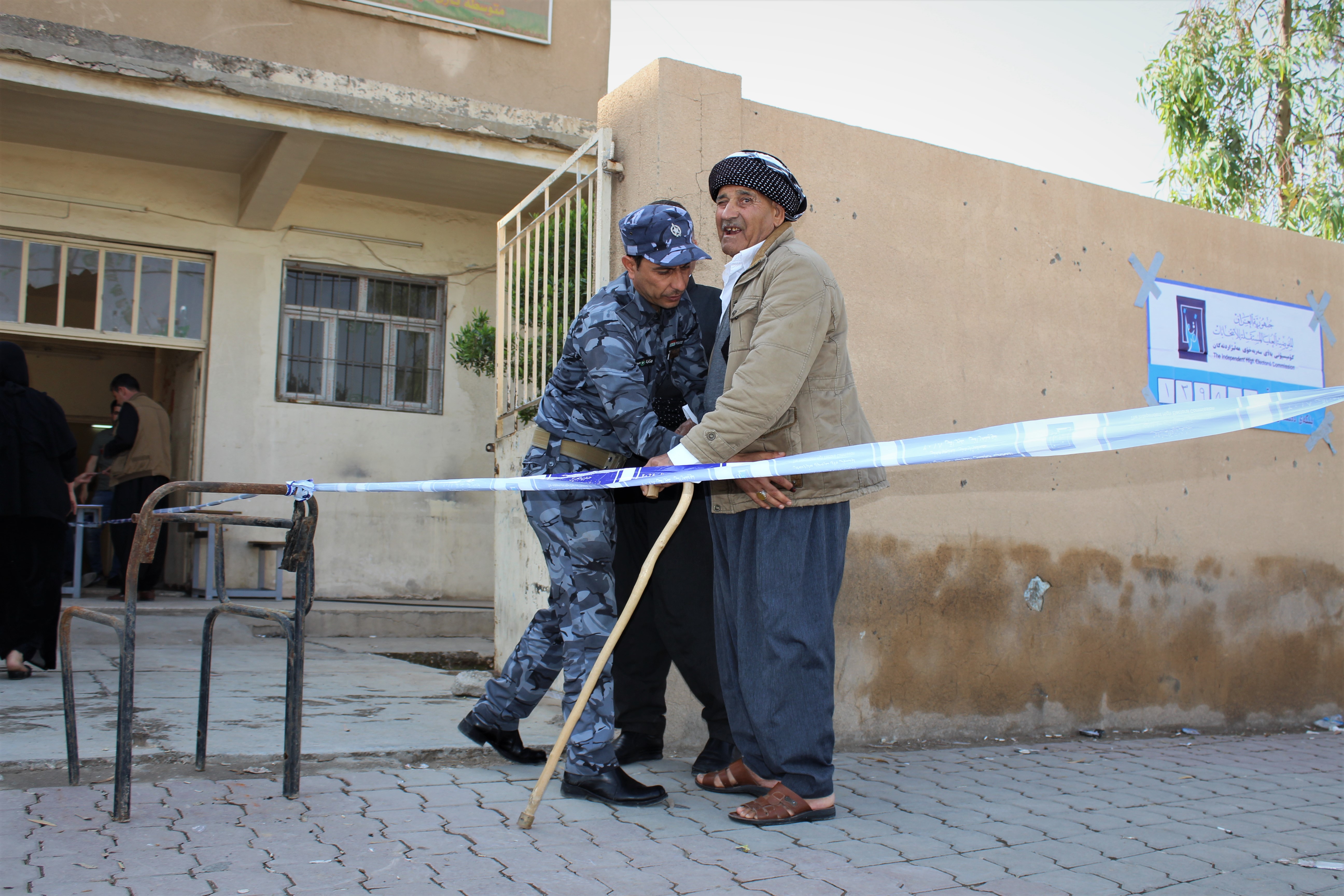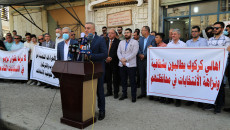The Independent High Electoral Commission IHEC has rejected calls by Turkmen and Arab MPs to delay October 10th parliamentary elections in Kirkuk for a week.
The call was denied by the Kurdish parties who are leading intensive electoral campaigns in the multi-ethnic, oil-rich city of Kirkuk.
Four members of the Iraqi parliament MPs called in a press conference in Kirkuk on September 15th for delay elections in Kirkuk for a week due to the dangerous and sensitive situation in Kirkuk.
"The elections will not be delayed because the (Iraqi) government and parliament and IHEC have launched all preparations for Election Day and there is no any reason for delay," said Lou'ai Arkan, director of Kirkuk office for IHEC, a Kurd.
Arab and Turkmens are skeptical
MPs Khalid al-Mafraji and Mohammed Tamim, representing the Arab community, beside Hassan Toran and Arshad al-Salihi, of the Iraqi Turkmen Front ITF, proposed the elections to be held in Kirkuk under direct supervision of the council of commissioners for the Iraqi Independent High Electoral Commission IHEC and international observers
The Arab and Turkmen accuse the Kurds of dominance over IHEC office in Kirkuk. “There are admin breaches in IHEC Kirkuk office for party agendas and work to repeat what happened in 2018 elections.”
The MPs rejected return of the Kurdish forces (Peshmerga) to Kirkuk in the excuse of attacks by remnants of the Islamic State in Iraq and Syria ISIS in the suburbs.
“Some parties try to make use of Daesh attacks to villages around Daquq, a district south of Kirkuk, and al-Rashad sub-district, to balance the security equation in Kirkuk in order to involve the Peshmerga into Kirkuk administrative borders,” a statement declared in the press conference KirkNow correspondent attended.
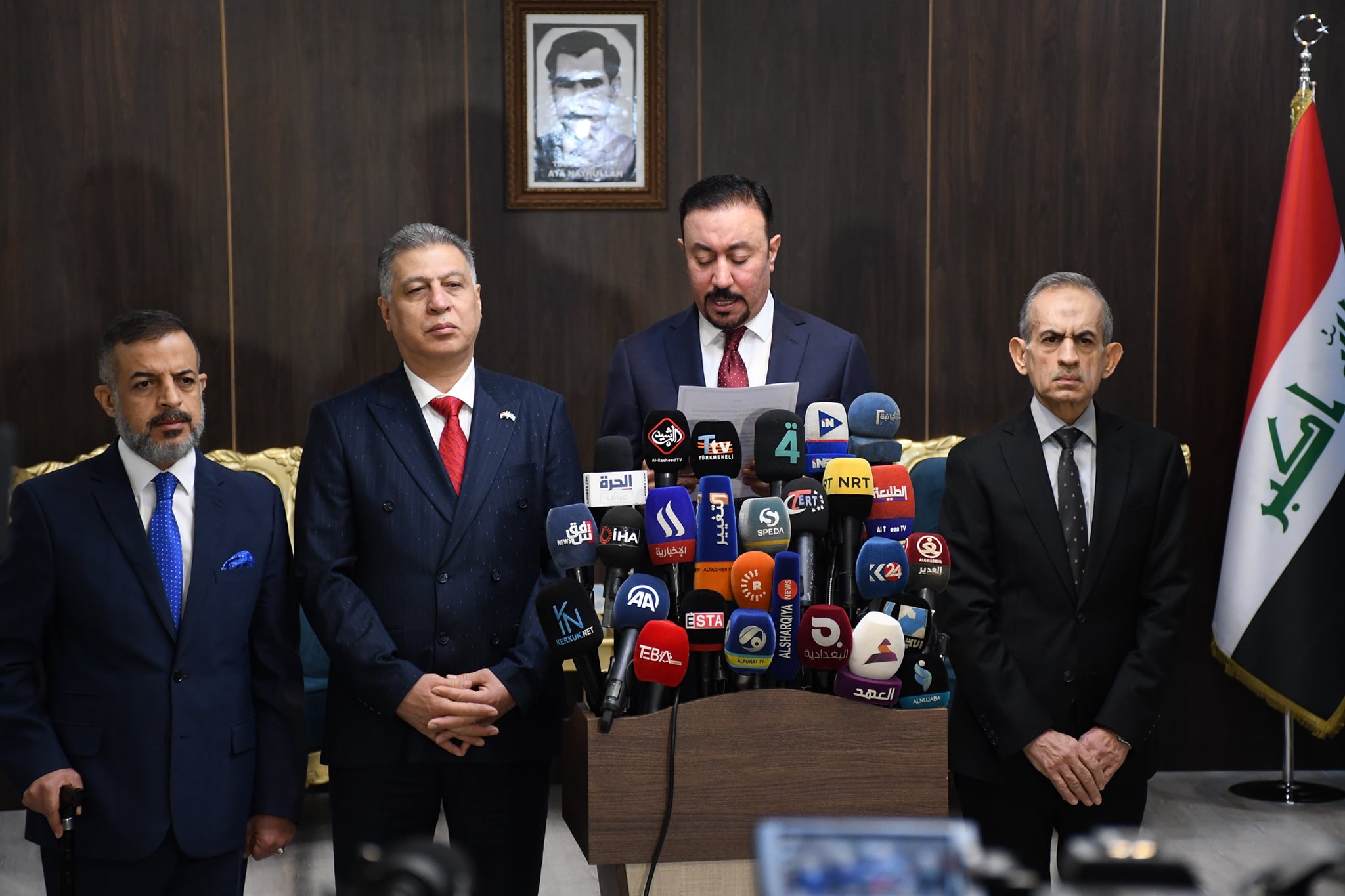
Kirkuk, Sept. 15th, 2021- Press conference in Kirkuk by Arab and Turkmen members of Iraqi parliament representing Kirkuk calling for delay in the elections for the sensitive case of Kirkuk. Facebook account of MP Khalid al-Mafraji
The Arab political council and Iraqi Turkmen Front ITF, accused the Patriotic Union of Kurdistan PUK, of fraud in 2018 yet it was denied by the PUK and the IHEC finally endorsed the results.
Back in 2020, The Arab and Turkmen parties in Kirkuk rejected appointment of Sawsan Tayib as director of IHEC Kirkuk office, accusing her of involvement in 2018 parliamentary elections fraud in Kirkuk in favor of a key political party.
Kurds were holding the position of IHEC director in the last rounds. Arabs and Turkmens always accuse the Kurds of fraud in elections as the Kurds were holding grip over power in the oil-rich city up to 2017 when Iraqi troops ousted the Kurdish forces following declaration of victory over the Islamic State in Iraq and Syria ISIS.
The Patriotic Union of Kurdistan PUK led by co-presidents Bafel Talabani and Lahoor Sheikh Jangi is the leading Kurdish party in Kirkuk since 2005. PUK has got 6 out of 12 seats of Kirkuk in Iraqi parliament elections of 2013 and 2018 while Arabs and Turkmens each got three seats.
Kurds eager for the elections
The Kurdish political parties in Kirkuk, contrary to the Turkmen and Arabs, showed no objection to the procedures of IHEC and are leading preparations for the elections.
Ali Qalayi, a leader of PUK in Kirkuk, said the calls by the Arabs and Turkmens "are surprising and comic at the same time since what will change in one week while they are running the admin and security file of Kirkuk and only head of IHEC is a Kurd?"
Qalayi believes there is balance in sharing positions of IHEC Kirkuk. In reply to doubts of Arabs and Turkmens, Qalayi said "they won't to blame the IHEC in case of their loss alike 2018 elections."
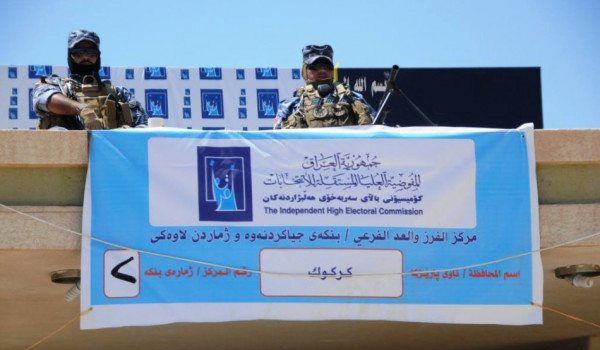
Kirkuk, 2018- A polling station for 2018 parliamentary elections. KirkukNow
On June 8th, The Kurdish political parties in Kirkuk have declared their consent about the late replacements in Kirkuk office of IHEC and "all its legal and administrative procedures for the sake of a transparent and integral election in Iraq."
The Kurdistan Democratic Party KDP, one of the leading Kurdish parties, is back to Kirkuk following the boycott since October 2017 events to open its offices and launch electoral campaigns for Iraqi parliament election race.
"The mission is hard in the disputed territories because for example in Kirkuk we are competing with Sunni and Shiite Arab parties and the Turkmens….and we have to keep the Kurdish cause into consideration to keep our position," said Khasraw Goran, in charge of KDP election desk.
Goran said several meetings were held in Baghdad with security services for safety of their nominees and smooth electoral campaign and ballot.
Kirkuk, 238 km north of Baghdad & Iraq's second largest oil reserves, is ethnically a mixed province for 1.2 million Kurds, Arabs, and Turkmen. It has long been at the center of the disputed territories between Baghdad and the autonomous Kurdistan Regional Government KRG.
Kirkuk joint operations’ command is an umbrella for security forces running the security of Kirkuk, including Iraqi army, local and federal police, Brigade 61 of Special Forces along with Popular Mobilization Forces PMF.
The acting governor, an Arab, is in office to replace the former Kurdish governor, a position the Kurds were occupying for years.
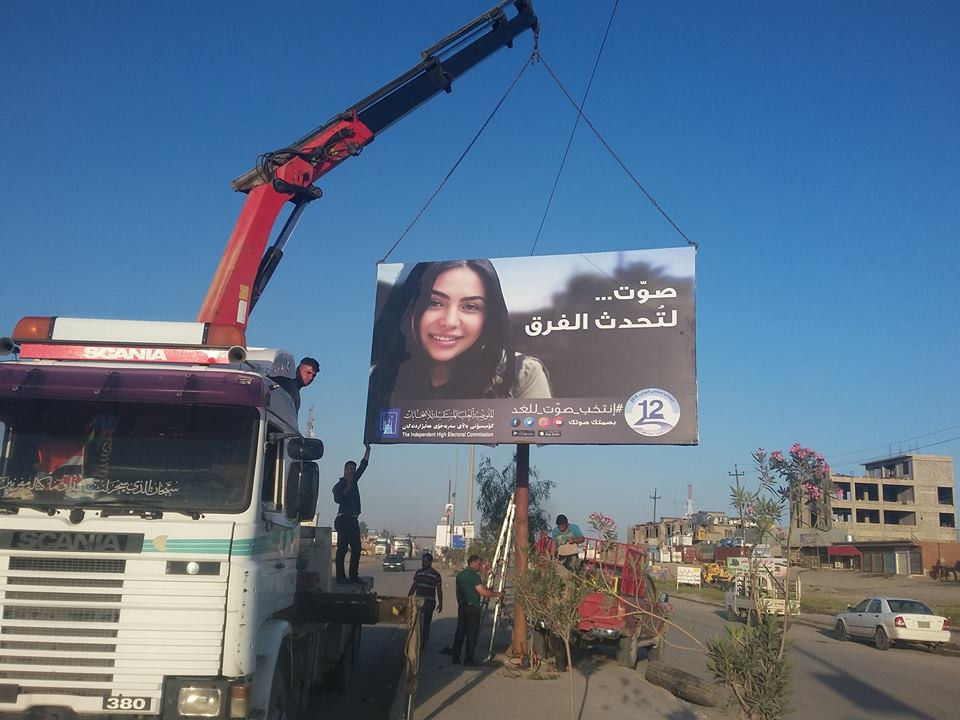
IHEC preparations ongoing
On June 2nd, the IHEC made a series of changes in Kirkuk, a copy of the order obtained by KirkukNow.
Director of IHEC in Kirkuk was replaced, beside managers for the departments of media, registry of voters, training, services, parties and candidate affairs, finance, law and administration
On July 29th, senior members of Arab Alliance and the Iraq Turkmen Front ITF, two of the leading parties of Arab and Turkmen communities, held a press conference at the doors of Kirkuk office of IHEC calling for reforms in the structure of IHEC in Kirkuk.
"The United Nations' UN team is attending our office on daily bases and supervises the process," Arkan added.
The IHEC has decided on September 14th to form a committee chaired by a judge with representatives from all communities of Kirkuk to supervise technical issues along office staff "and in order to drop doubts," IHEC Kirkuk office director said.
One million eligible voters of Kirkuk, out of total 1.6 million population, will nominate 12 Mps to Baghdad out of 130 nominees.
The new electoral law ratified last November, a key demand of demonstrators in 2019, changed each of the country’s 18 provinces into several electoral districts, total 83, in order to prevent parties from running on unified lists, which has in the past helped them easily take all the seats in a specific province. Instead, the seats would go to whoever gets the most votes in the electoral districts.
The 329-member house of representatives was elected in May 2018. The vote is held every four years, but the protesters have been demanding early elections.

